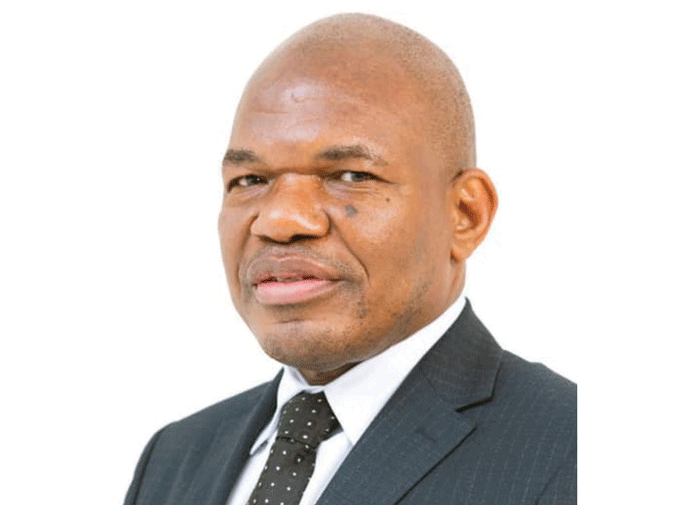
BY MELODY CHIKONO THE Deposit Protection Corporation (DPC), which is a statutory body previously known as the Deposit Protection Board established on July 1 2003, is hosting an International Association of Deposit Insurers (IADI) Africa regional conference and AGM next week. Zimbabwe Independent’s business reporter Melody Chikono (MC) caught up with DPC’s acting CEO Gift Chirozva (GC) to share some of the key issues to be discussed. DPC’s primary objective is to provide deposit protection to depositors in deposit taking institutions licenced by the Reserve Bank of Zimbabwe. In the event of a bank failure, DPC will compensate depositors part or all of their funds that were in the closed bank up to the maximum cover limit prevailing at the time of the bank closure. Below are excerpts of the interview:
MC: You are hosting the IADI Africa regional committee conference and AGM next week. What are the key issues this conference is seeking to address?
GC: The key issues the conference will address include:
- Impact of climate change on financial stability;
- Implications of digital revolution to the financial sector;
- Regulation of E money and digital products;
- Back up funding during systemic crisis;
- Effective differential premium frameworks; and
- Effective legal framework for dealing with parties at fault.
MC: What can you say about general deposit protection landscape in Zimbabwe?
GC: Deposit protection in Zimbabwe is now well established, having been in operation for more than 18 years, during which period depositors of nine failed banking institutions were successfully compensated in line with DPC’s statutory mandate.
The corporation benchmarks its operations to international best practices, and these are constantly assessed by IADI, the International Monetary Fund (IMF) and World Bank missions.
MC: What shortcomings exist in this space that you feel can benefit from this conference?
GC: Legal framework for dealing with parties at fault in bank failures needs to be strengthened in Zimbabwe. There is need to put in place mechanisms for deposit protection of evolving e-money and digital currencies
- Chamisa under fire over US$120K donation
- Mavhunga puts DeMbare into Chibuku quarterfinals
- Pension funds bet on Cabora Bassa oilfields
- Councils defy govt fire tender directive
Keep Reading
MC: What main lessons have you drawn from such conferences over the years?
GC: Supervisory and regulatory practices must keep abreast of developments in the financial sector and the academia.
Establishment of a separate bank insolvency regime different from the corporate insolvency regime is critical for financial stability at the macro-prudential level as well as the safety and soundness of individual banking institutions at a micro-prudential level.
There must be close coordination and information sharing between the deposit insurer and other safety net players on an ongoing basis to effectively protect depositors and contribute to financial stability.
MC: Depositors and insurance policy holders have lost significant amounts in relationships to decades of economic turmoil in Zimbabwe, hyperinflation and policy changes, dissolutions among other things. How best are you trying to ensure they do not suffer the same fate in the future?
GC: As per the Corporation’s statutory mandate the DPC is in continuous consultation with both the monetary and fiscal authorities where it proffers advice and recommendations on how to mitigate the recurrence of such incidences at various forums that include smart regulation platform and multi-disciplinary financial stability committee.
An effective deposit protection scheme engenders confidence in the financial system which confidence promotes financial stability
MC: We are looking at another hyperinflationary period with banks now handling trillions in transactions. How safe are depositors monies?
GC: On aggregate the banking sector is safe and sound and has shown tremendous resilience so far.
Various measures are being put in place by the Monetary and Fiscal authorities to ensure that the scourge of inflation is contained. We are confident that these will bear fruit in the fullness of time.
MC: Can you give us a brief of the strides you have made in depositors compensation over the years?
GC: Pursuant to its mandate, the Corporation has compensated insured depositors of nine failed banking institutions since its inception in July 2003.Compensation of depositors of three institutions, i.e. Century Discount House (CDH), Rapid Discount House (RDH) and Sagit Finance House (SFH) was done during the Zimbabwean dollar era from 2004 to 2006, when DPC’s mandate was still that of a pay box scheme. DPC’s mandate was expanded in March 2012. Since then, six banking institutions were closed. A total of 26 724 out of 59 524 depositors in the nine closed institutions have benefitted from the deposit protection scheme since its inception in 2003.
MC: What challenges have you faced as an Institution?
GC: Like any other institution DPC has also encountered some challenges. Protracted legal processes hampered the pursuit of parties at fault and loan recovery processes. We believe proposed Banking Act amendments and operationalisation of Commercial Courts will help going forward.
Meanwhile the pursuit of most debtors is now uneconomical relative to the outstanding balances due to high legal costs which are pegged in United States dollars.
The New Insolvency Act deliberately excludes resolution of banks.
Amendments to the DPC Act to establish a separate bank resolution framework is still in the works.
DPC is also engaging stakeholder for the implementation of a Single Customer View to resolve the problem of incomplete Depositor Records at failed financial institutions as such a state of affairs slows down reimbursements and resolution.
Lately, a limited spectrum of investment instruments to hedge the Fund against the vagaries of currency volatility, high inflation, and low returns calls for close attention.
MC: What efforts are you making to ensure restoration of confidence in the financial services space?
GC: Constant review of depositor insurance cover levels to ensure their credibility and relevance as well as ensure that at least 90% of depositor accounts are fully insured.
Amendments to DPC Act to enhance the bank liquidation framework
Currently the Corporation as agent for government has been and is paying compensation for loss of deposit value during the 2019 currency reforms as announced by the Honourable Minister of Finance and Economic Development in the 2021 National budget for vulnerable depositors who had balances of US$1 000 and below.
Work is already underway to extend the compensation scheme to depositors who had balances of up to US$100 000 as announced by His Excellency President Emmerson Dambudzo Mnangagwa early this year.
MC: What is your outlook in a turbulent environment like Zimbabwe?
GC: The world over national economies are always susceptible to business cycles and financial cycles; and the Corporation will play its part to ensure the attainment of goals set out in the National Economic Blue print NDS 1.
Thus, we are hopeful that the policies being implemented by the Fiscal and Monetary authorities will stabilise the macro-economic environment in the long run.










